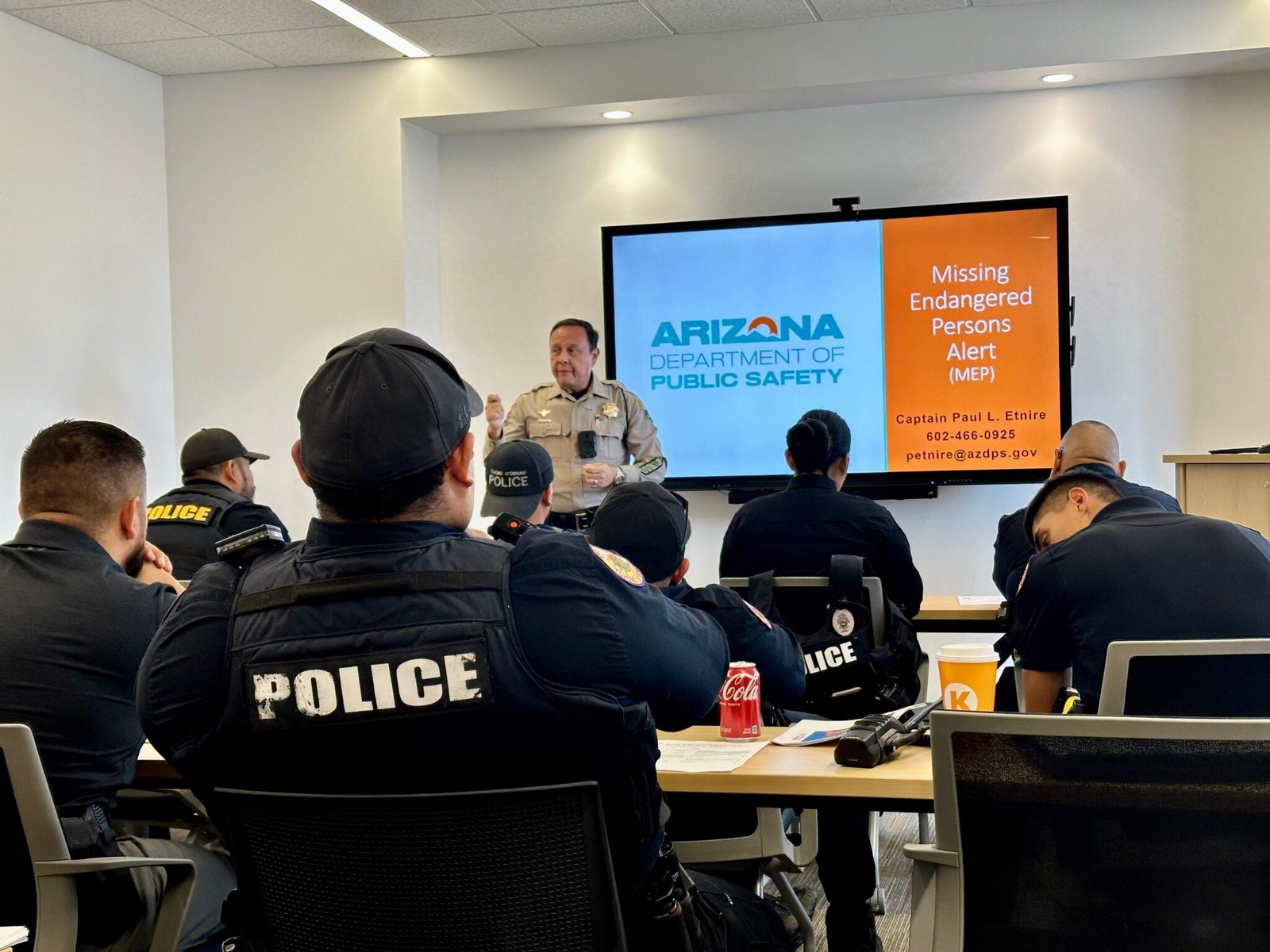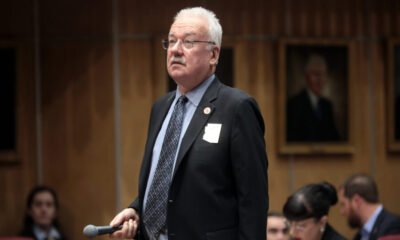April Ignacio
Tohono O’odham PD Commits to Crucial Training on Missing and Murdered Indigenous Peoples

April Ignacio recently conducted a training session for officers of the Tohono O’odham Police Department, focusing on the Missing and Murdered Indigenous Women (MMIW) movement. Out of 15 officers present, only three indicated they were familiar with the initiative.
The MMIW movement, which began in Canada in the early 1990s, seeks to raise awareness about the alarming rates of Indigenous women going missing or being murdered. Ignacio emphasized that the movement’s growth is rooted in communities connecting the dots on this ongoing crisis.
As the co-founder of Indivisible Tohono, a grassroots organization dedicated to Tohono O’odham issues, Ignacio has long championed the cause. She serves on both the Southern Arizona MMIP Task Force and the state MMIP Task Force. With a goal to train all members of her department, Ignacio initiated mandatory MMIW training in May, aiming for completion by the end of August.
“The first step is getting law enforcement to understand that this is a real issue,” she noted, highlighting the critical need for insights into the ongoing crisis affecting Indigenous communities.
Ignacio pointed out that local changes can often be more efficient than larger-scale reforms. Her training sessions, which began on May 27 at the San Xavier Police Department, included personnel from the Arizona Department of Public Safety to provide a comprehensive understanding of MMIW efforts.
At the initial training, Ignacio displayed photographs of missing and murdered women from the Tohono O’odham Nation, underscoring the importance of remembering their names and faces. “This isn’t all of them,” she highlighted, indicating that many cases remain unaddressed.
In discussing the alarming statistics, Ignacio stated that most murdered Indigenous women are killed by individuals they know. The relationship between Indivisible Tohono and the police department proved critical for the success of this training initiative, evolving from years of limited responses to inquiries on MMIW.
Ignacio recalled how her connection with Interim Police Chief James Cook at a task force meeting opened doors for mandatory training, transforming her initial proposal into a comprehensive program for all officers.
Ignacio emphasized the necessity for police officers to be educated about MMIW as they interact with the community. This foundation of understanding is crucial for addressing issues that disproportionately affect Indigenous populations, who face higher rates of violence due to their smaller demographics.
The Tohono O’odham Police Department stands out in Arizona by making MMIW training mandatory, a significant step compared to over 100 other law enforcement agencies statewide. Ignacio reported a positive reception from officers during the sessions, revealing gaps in their processes related to tracking missing persons and engaging the community.
She cited the case of her cousin, Karanina Ignacio, who has been missing since 2019, to illustrate the systemic issues within the TOPD regarding communication with families of the missing. Ignacio urged for improved strategies, such as a dedicated MMIW website, to keep the community informed about ongoing cases.
Officers raised questions about data scarcity on MMIW and challenges related to community cooperation, revealing the complexities law enforcement faces when addressing domestic violence cases. Ignacio encouraged officers to press for updates and improvements within their community resources.
These training sessions also addressed the pressing issues of mental health and substance abuse that often underlie incidents of violence. Ignacio underscored the need for better support services, highlighting the lack of grief counseling and resources for behavior health within the Tohono O’odham Nation.
According to the Urban Indian Health Institute, Arizona has the third-largest number of missing and murdered Indigenous women in the United States, with 54 documented cases in the state. The lack of a centralized database compounds the struggles faced in addressing these tragic circumstances.
As the training unfolds, Ignacio remains optimistic about the potential for change, not only within the Tohono O’odham Nation but also as a model for other tribal communities. She aims to expand these discussions, advocating for a robust training framework that prioritizes the safety and well-being of Indigenous peoples.


















